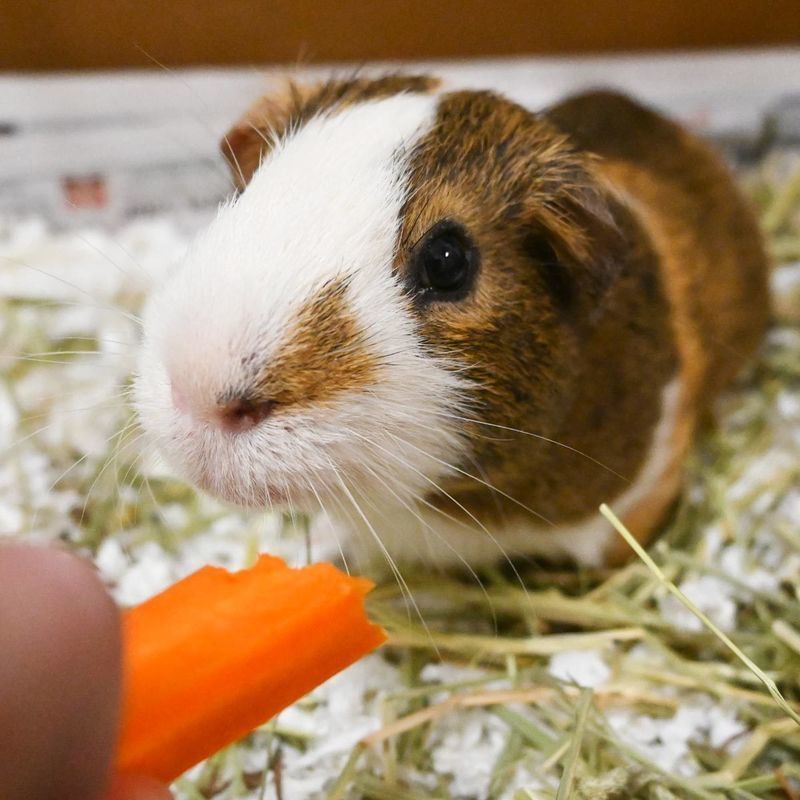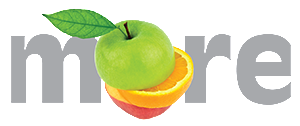Do Not Feed Guinea Pigs the Following:
Bananas (too sugary)
Beans (causes bloating)
Bok Choy (causes bloating)
Broccoli (causes bloating)
Cabbage (causes bloating)
Cauliflower (causes bloating)
Celery (strings dangerous, no nutrients)
Collards (causes bloating)
Commercial Treats (too sugary)
Iceberg Lettuce (no nutritional value)
Kale (toxic in excess)
Grapes (toxic in excess, too sugary)
Mustard greens (toxic in excess)
Rabbit pellets (don't contain vitamin C)
Raisins (toxic in excess, too sugary)
Seeds in husks (can be a choking hazard)
Spinach (toxic in excess)
Do Feed Guinea Pigs:
Grass Hay - Grass hay is an important part of a guinea pig's diet and should always be available. It is good to give a variety of grass hay, as each type of hay provides a slightly different texture and fiber content.
Alfalfa Hay - Only give to pregnant, nursing, or young guinea pigs under 6 months of age. Alfalfa hay is too rich for adult guinea pigs, and in excess can lead to health problems.
Botanical Hay - This hay has a great variety of grass and dry flowers, which offers different flavors for guinea pigs to enjoy.
Oat Hay - This is a good hay to throw in some variety as it is thicker and harder and helps keep teeth ground down a little.
Orchard Grass - This hay has a softer texture, which is nice for bedding as well as food.
Timothy Hay -This grass hay is a favorite for most guinea pigs and is the most available in stores.
Pellets
Stay away from "gourmet" pellets that include peanuts, seeds, colorful cereal, and other additives. Guinea pigs that are pregnant, nursing or under 6 months of age may receive unlimited alfalfa pellets. Guinea pigs 6 months and up should receive only 1/8 to ¼ cup of alfalfa pellets. Any more than that can lead to obesity and health problems, and is unnecessary when also fed hay and fresh fruits and vegetables. Timothy pellets are healthier than alfalfa pellets for guinea pigs 6 months and up because they have a lower fat and calcium content. It is best to purchase pellets in small quantities and store them in a dry, cool, dark place to preserve the potency of the vitamin C. Look for a pellet that uses stabilized vitamin C and has a "Best If Used By" date to ensure quality.
The Tri-County Humane Society sells Timothy Pellets, Timothy Hay, Oat Hay, and Botanical Hay from the Oxbow Company, which is a premium brand for small animal diets.
Fresh Fruits and Vegetables
Guinea pigs should eat about 1 cup of vegetables each day. Fruit should be given once or twice a week, and limited to 1-2 tablespoons per 2 pounds of body weight. Remember to rinse all fruits and vegetables thoroughly. Most fresh fruits and vegetables have high water content, so your guinea pig may drink less water than expected. Do not feed wilted or spoiled food, and remove uneaten fruits and veggies daily. New foods must be introduced slowly to avoid digestive upsets. If you notice loose stools, you are feeding too much and you should cut out the fresh fruits, veggies and pellets, feeding only grass hay until the stool is formed again. Variety is the key to maintaining a healthy guinea pig!
Vegetables
(*)=Use no more than twice a week.
Alfalfa, radish & clover sprout
Basil
Beet Greens (tops)*
Brussel Sprouts
Carrots
Carrot Tops*
Chard (red or green)*
Cilantro
Clover
Cucumber
Dandelion Greens (no pesticides)*
Escarole
Green Peppers
Mint
Parsley*
Pea Pods (the flat edible kind)*
Peppermint Leaves
Radicchio
Radish Tops
Raspberry Leaves
Romaine Lettuce or Red/Green Leaf Lettuce
Watercress*
Wheat Grass
Fruits
Apple
Blueberries
Melon
Orange (including peel)
Papaya
Pear
Peach
Pineapple
Plum
Raspberries
Strawberries
Tomato









